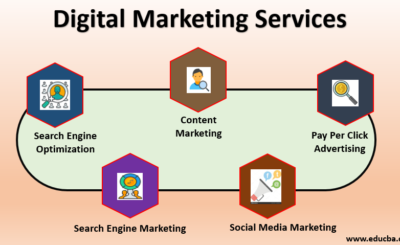In today’s data-driven world, information is key to making informed decisions, gaining insights, and driving innovation. When it comes to qualitative research, interviews serve as invaluable sources of information, offering rich insights into people’s thoughts, opinions, and experiences. However, the process of transcribing interviews accurately and efficiently can be time-consuming and labour-intensive, often requiring specialised skills and resources. This is where professional interview transcription services step in, playing a crucial role in transforming spoken words into written text. In this blog, we’ll delve into the multifaceted role of professional interview transcription services and how they contribute to the success of various endeavours, from academic research to market analysis and beyond.
1. Ensuring Accuracy and Reliability
One of the primary roles of secure interview transcription services is to ensure accuracy and reliability in converting spoken words into written text. Skilled transcriptionists have the expertise and attention to detail needed to capture nuances, accents, and colloquialisms accurately, preserving the integrity of the original content. By delivering high-quality transcripts free of errors and inconsistencies, professional transcription services provide a reliable foundation for analysis, interpretation, and decision-making.
2. Facilitating Data Analysis and Interpretation
Transcribed interviews serve as valuable sources of qualitative data, offering researchers a wealth of information to analyse and interpret. Professional interview transcription services play a crucial role in facilitating data analysis by transforming audio recordings into searchable, organised text documents. Researchers can easily identify themes, patterns, and insights within the transcripts, enabling them to draw meaningful conclusions and generate new knowledge. Whether conducting academic research, market analysis, or customer feedback surveys, transcribed interviews serve as a rich source of qualitative data for in-depth analysis.
3. Enhancing Accessibility and Collaboration
Transcribed interviews enhance accessibility and collaboration by making information readily available and easily shareable among researchers, collaborators, and stakeholders. Instead of relying solely on audio recordings, which may be difficult to access or comprehend for some individuals, transcripts provide a clear, written record of the interview content. This promotes inclusivity and ensures that all team members have equal access to the information, fostering collaboration, and communication across diverse teams and disciplines.
4. Supporting Documentation and Citation
In academic research and scholarly publications, proper documentation and citation of sources are essential for establishing credibility and integrity. Professional interview transcription services provide researchers with accurate transcripts that serve as primary sources of data for their studies. These transcripts can be cited in research papers, dissertations, and scholarly articles, providing transparency and accountability in the research process. By adhering to rigorous standards of accuracy and citation, transcription services contribute to the credibility and rigour of academic research.
5. Saving Time and Resources
Outsourcing interview transcription to professional services saves researchers time and resources, allowing them to focus on higher-value tasks and priorities. Transcription can be a time-consuming process, especially for lengthy interviews or large volumes of data. Professional transcriptionists have the expertise and efficiency to transcribe interviews accurately and expediently, freeing up researchers to dedicate their time and energy to data analysis, interpretation, and writing.
In conclusion, professional interview transcription services play a vital role in transforming spoken words into written text, facilitating data analysis, interpretation, and collaboration across various fields and disciplines. By ensuring accuracy, reliability, and accessibility, transcription services empower researchers to uncover insights, generate knowledge, and drive innovation in their respective fields. Whether conducting academic research, market analysis, or legal proceedings, professional transcription services provide a valuable resource for capturing, documenting, and analysing qualitative data.








